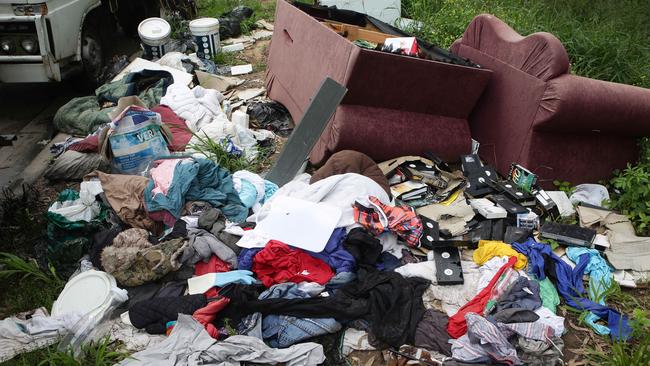Susanne Cole: Illegal dumping isn’t worth risking heavy penalties from Environment, Resources and Development Court
WASTE depot fees and skip costs are more attractive than being fined for illegally dumping rubbish, writes ERD Court senior judge Susanne Cole.

Opinion
Don't miss out on the headlines from Opinion. Followed categories will be added to My News.
ILLEGAL dumping of waste in South Australia is a continuing problem which frequently results in prosecution.
Last year, the Environment Resources and Development (ERD) Court dealt with a defendant who had dumped more than 64 tonnes of waste beside the road at four suburban locations.
It included fibreglass sheeting, bricks, PVC pipes, a tyre, milk packaging, aluminium guttering, stone, concrete and, unknown to the defendant, asbestos.
He had uncovered the waste whilst excavating his property in preparation for building a house.
Another defendant was faced with the task of disposing of more than 100 tonnes of soil following an excavation for a swimming pool.
He engaged a contractor and allowed him to dump the soil at a nearby conservation park.
A third defendant was operating a business collecting and disposing of building waste. To avoid dumping fees, he dumped 11 loads of building waste at Regency Park and Gillman.
Community concern about another instance of illegal dumping of rubbish, this time at Osborne was recently reported by The Advertiser. Household rubbish, broken furniture, tyres and other items were found dumped on land next to a railway line.
Illegal dumping usually results from ignorance about the methods of disposing of waste lawfully, unwillingness to pay depot dumping fees, or both.
Under the statutory regime regulating waste disposal in our State, the lawful means of disposing of the kind of waste likely to be generated in a household cleanup or renovation is generally confined to taking it to a licensed depot, having a contractor take it to a licensed depot in a skip, putting it in the appropriate bin provided by your local council for kerbside collection, or disposing of it in conformity with a hard rubbish or other program offered by your council.
Anyone tempted to dump rubbish illegally might benefit from knowing the possible consequences.
The maximum fine for intentionally or recklessly illegally dumping waste is $120,000.
For illegal dumping without intention or recklessness the maximum fine is $60,000.
If serious environmental harm results from the illegal dumping, the maximum fine is $500,000. These fines are for individuals with maximum fines for corporate bodies much higher.
In the first case mentioned above, the defendant paid $13,000 in clean-up costs.
He was convicted of two offences and fined $7200, reduced from $12,000 for his early guilty plea.
In the case of the swimming pool soil, that decision cost the defendant $17,000 for remediation and a fine of $18,000, reduced from $30,000 for his early plea of guilty.
In the third case, the defendant was ordered to pay more than $44,000 in clean-up costs and given a sentence of four months and two weeks imprisonment, reduced from five months on account of his plea and suspended because of his efforts at personal rehabilitation.
Waste depot fees and skip costs are more attractive by comparison.
Susanne Cole is Environment Development and Resources Court senior judge


